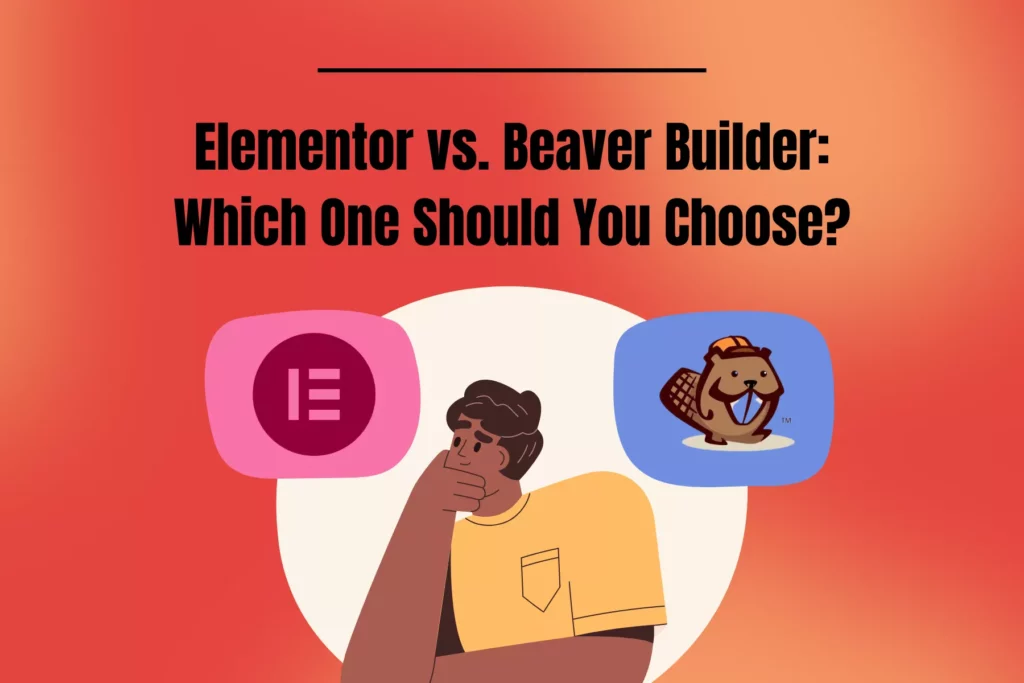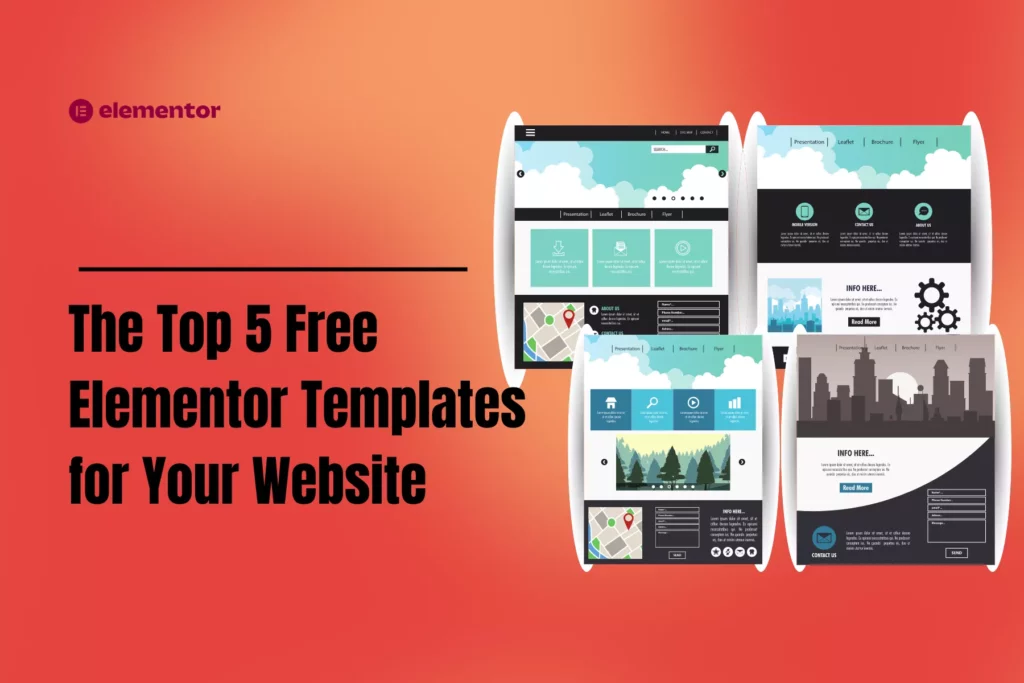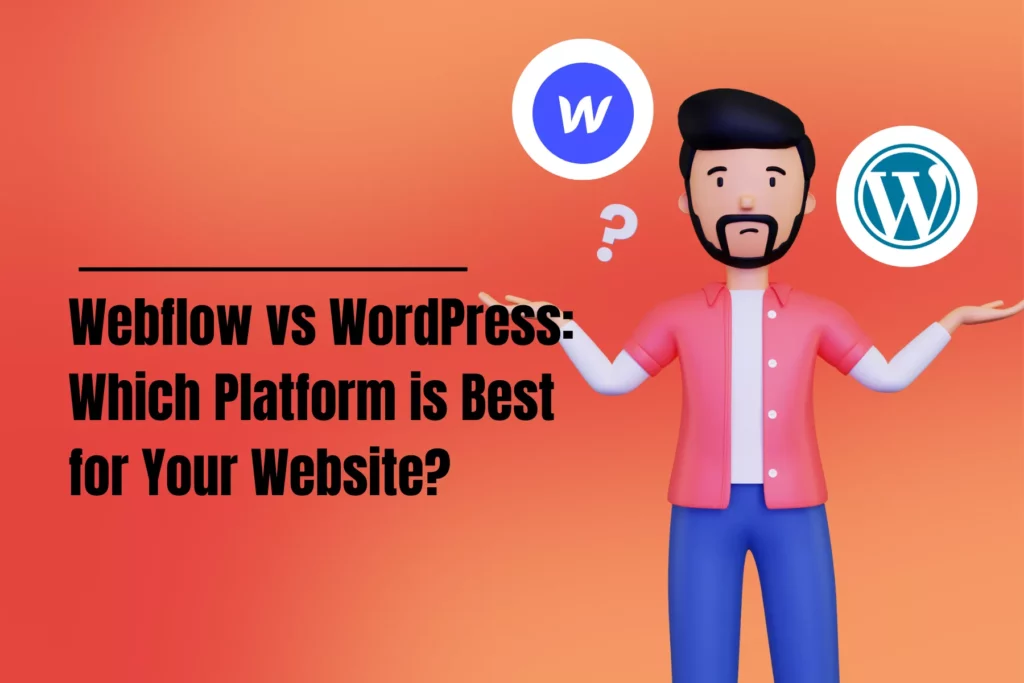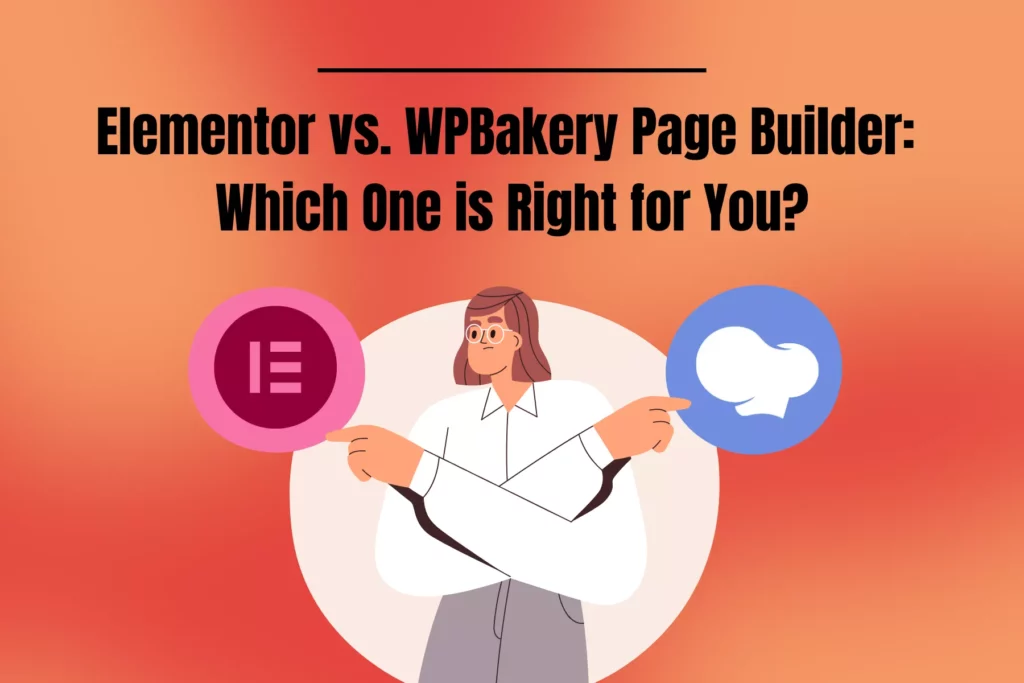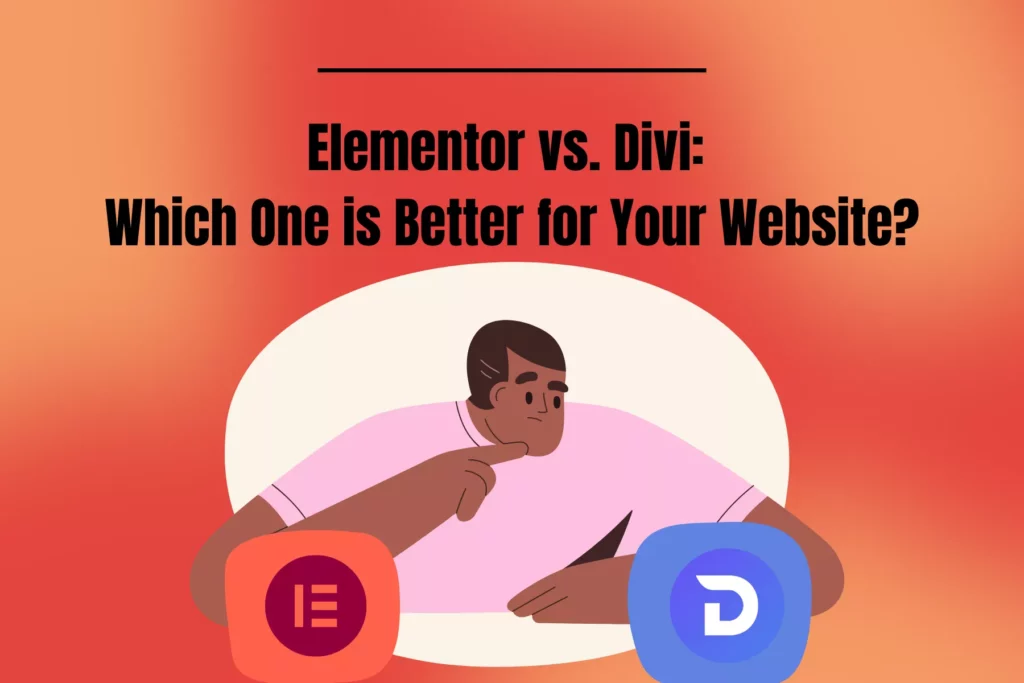When planning to create a website, the Elementor vs Beaver Builder debate may be at the forefront of your decision-making process. These two renowned website builders each have their unique features, but how do they compare, and which one is the ideal choice for your specific needs?
In this article, we will delve into the Elementor vs Beaver Builder comparison, offering valuable insights to help you determine the most suitable option for your website development project.

Is it possible to create a website without coding experience?
Yes! Website builders such as Elementor and Beaver Builder make it simple for anybody with no technical knowledge to construct a website.
Both of these builders are drag-and-drop, which means you can add and move things around your website without having to know how to code.

Elementor vs Beaver Builder: Features
When it comes to website builders, Elementor vs Beaver Builder are two of the most popular options available. If you’re trying to decide which one to use for your website, it’s important to compare the features of each.
Elementor's key features: 🌟
- Drag and Drop Editor: Elementor’s intuitive interface allows users to easily drag and drop elements onto their web pages, streamlining the design process.
- Responsive Design: Elementor ensures that your website will look great on all devices by offering mobile-friendly designs and device previews.
- Template Library: Elementor provides a vast library of pre-designed templates and blocks to help you get started quickly and easily customize your site.
- Theme Builder: Take full control of your website’s design by creating custom headers, footers, and post templates using Elementor’s powerful theme builder.
- WooCommerce Builder: Elementor simplifies the process of building an online store with its native WooCommerce integration, allowing you to design and customize your shop pages.
- Popup Builder: Engage your audience with eye-catching popups that can be easily created and customized using Elementor’s popup builder.
- Form Builder: Elementor’s form builder allows you to create and customize contact forms, registration forms, and more, with a wide range of field types and integrations.
- Global Fonts and Colors: Maintain a consistent look and feel across your website by setting global fonts and colors.
- Dynamic Content: Elementor supports dynamic content, allowing you to pull information from your site and display it in various ways, such as custom post types or custom fields.
- Integrations: Elementor offers seamless integration with popular marketing tools, social platforms, and other third-party services to help you optimize your website.
- Developer-Friendly: Elementor is designed with developers in mind, offering a range of features and APIs to extend the platform’s functionality.
- Support and Community: Elementor has a dedicated support team and an active community of users, providing help and inspiration for website creators of all skill levels.
Beaver Builder's key features: 🌟
- Drag-and-drop interface: Easily design and customize your website layout by dragging and dropping elements onto the page.
- Responsive design: Create websites that automatically adjust to different screen sizes, ensuring a seamless experience for users on all devices.
- Pre-built templates: Choose from a vast library of professionally designed templates to kickstart your website design process.
- Customizable modules: Access a wide range of customizable modules, such as text, images, videos, sliders, and more, to create unique pages.
- Global settings: Manage your site’s overall styling and design settings in one central location.
- Custom CSS and JavaScript: Add custom CSS and JavaScript code to enhance your website’s functionality or appearance.
- WooCommerce compatibility: Seamlessly integrate your online store with the WooCommerce plugin.
- Multisite support: Use Beaver Builder across multiple websites with a single license.
- Reusable layouts: Save your custom layouts and reuse them across different pages or projects.
- Shortcode and widget support: Easily integrate third-party plugins and widgets into your site using shortcodes.
- SEO-friendly: Build websites that are optimized for search engines, ensuring better visibility and ranking.
- White labeling: Rebrand the Beaver Builder plugin and theme to match your agency or client’s branding.
- Import/export functionality: Transfer your layouts and templates between different websites or share them with other users.
- Revision history: Access and restore previous versions of your page with the built-in revision history feature.
- Developer-friendly: Leverage a variety of developer resources, such as custom module documentation and hooks, to extend the functionality of Beaver Builder.
Both these powerful WordPress page builders offer a user-friendly drag-and-drop interface, making it easy for anyone to design and customize their website.
However, while Elementor stands out with its theme builder, popup builder, and form builder features, Beaver Builder shines with its multisite support, white labeling, and import/export functionality.
So, if you’re still on the fence about Beaver vs Elementor, think about what you value most in a page builder. If you need more control over your site’s design and want a more extensive template library, Elementor might be the better choice for you.
On the other hand, if you prioritize managing multiple websites with a single license or want the ability to white label your page builder, Beaver Builder could be the ideal option.
At the end of the day, both page builders have their own unique strengths, so it all boils down to what works best for your specific needs.
Elementor vs Beaver Builder: Ease of Use
Either Elementor and Beaver Builder are well-known for their ease of use. They include user-friendly interfaces that make adding and changing features to your website a breeze. Although both systems are simple to use, some users may perceive Elementor’s UI to be more crowded than Beaver Builder’s.
This is because Elementor has more features and options than Beaver Builder, which might make the UI look cluttered.
Nonetheless, thanks to their user-friendly interfaces and strong functions, both Elementor and Beaver Builder remain popular alternatives among website builders.
Elementor vs Beaver Builder: Performance
When comparing website builder plugins, Elementor vs Beaver Builder is a common comparison. In terms of performance, both Elementor and Beaver Builder are equally lightweight. However, Elementor has had a history of causing website slowdowns in the past.
Fortunately, the newest version of Elementor has improved its performance and should no longer cause any issues. So, if you’re deciding between Elementor vs Beaver Builder, performance-wise, both are good options, but it’s important to keep in mind that past versions of Elementor may have caused slowdowns.
Elementor vs Beaver Builder: Pricing
Elementor vs Beaver Builder each offer free versions, but to access all of the features, you’ll need to upgrade to a paid plan.
Elementor's paid plans start at $59/year for one website.

Beaver Builder's paid plans start at $99/year for unlimited websites.

Elementor vs Beaver Builder: Support
Elementor and Beaver Builder each offer extensive documentation and support to help users navigate their respective platforms.
In terms of support resources, Elementor provides a knowledge base, video tutorials, and a user forum where users can connect with each other and get advice and support from the community. Beaver Builder, on the other hand, offers a knowledge base, video tutorials, and a ticket-based support system where users can submit their questions and receive assistance from the support team.
Elementor and Beaver Builder understand the importance of providing clear and helpful documentation to their users. This enables users to make the most of their website building tools and overcome any issues or challenges that they may encounter along the way.
Here's a brief comparison table of Elementor vs Beaver Builder:
| Aspect | Elementor | Beaver Builder |
|---|---|---|
| Ease of use | Intuitive drag-and-drop editor with keyboard shortcuts and right-click functionality | Drag-and-drop visual editor with keyboard shortcuts, but no right-click option |
| Features | Supports multiple basic and pro widgets, but lacks white labeling feature | Features a range of elements, including white labeling in premium plans |
| Design options | Advanced design settings, such as motion effects, available in Elementor Pro | Limited advanced design options |
| Themes and templates | Offers over 200 pre-made templates and a built-in theme builder | Fewer pre-made templates, and theme builder requires an additional cost |
| Responsiveness | Designs created with Elementor are responsive by default | All layouts automatically adjust to different screen sizes |
| Pricing | Starts at $59/year | Starts at $99/year |
| Support | Offers support and an extensive knowledge base | Provides various support channels and learning resources |
My Final Verdict...
Overall, my experience using Elementor has been great and I highly recommend it for website development due to its extensive functionality and customization options. On the other hand, I have recently started using Beaver Builder for my current project and have found that its simpler and more streamlined user interface is a better fit for my current needs.
Ultimately, the choice between Elementor and Beaver Builder depends on your personal preferences and requirements. I suggest trying out both builders and deciding which one feels more intuitive and user-friendly for your website development goals.

Most Frequently Asked Questions
Yes, both builders have limitations on their free versions. For example, with Elementor, you won’t have access to the theme builder or popup builder. With Beaver Builder, you won’t be able to use some of the more advanced modules.
Both builders are beginner-friendly. However, some users might find Beaver Builder’s interface simpler and more intuitive.
Yes, Elementor and Beaver Builder are compatible with any WordPress theme.
Yes, Elementor and Beaver Builder builders offer mobile responsive design options. You can preview your website on different device sizes and adjust the layout accordingly.
Elementor and Beaver Builder are SEO-friendly. However, if you’re looking for a builder that offers more SEO features, Elementor might be the better choice.
Yes, you can create an online store with both builders. However, you’ll need to use a third-party plugin like WooCommerce to add e-commerce functionality to your website.
Yes, you can transfer your website from one builder to the other. However, it might require some work, as the two builders use different coding structures.
Yes, ongoing fees are required to access the paid plans for Elementor and Beaver Builder. To maintain your license, you’ll need to renew annually for both platforms.
